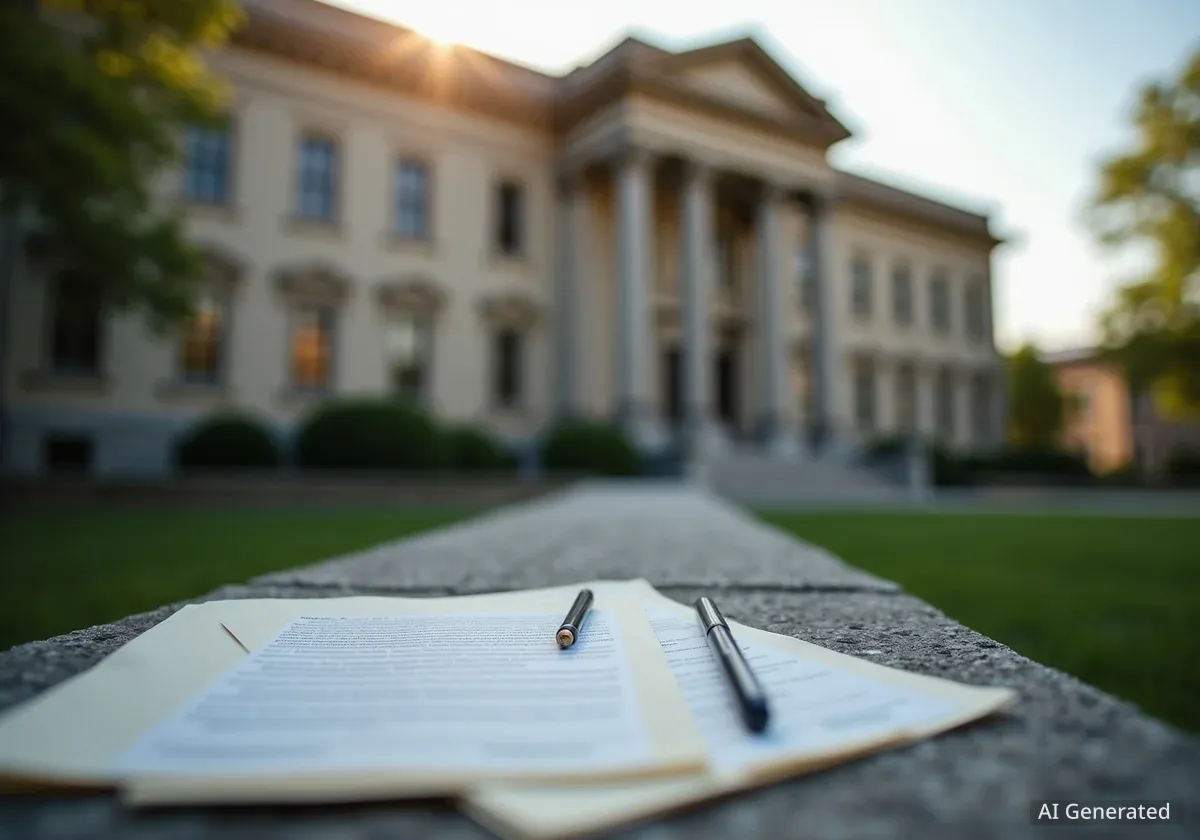The Massachusetts Appeals Court heard oral arguments on October 1, 2025, in a significant zoning dispute case involving Evergreen Development Group and the City of Boston's Zoning Board of Appeal. The case centers on the denial of a permit for a proposed mixed-use development in the historically protected Beacon Hill neighborhood, raising questions about the balance between modern housing needs and historical preservation.
Evergreen Development Group is challenging the Zoning Board's decision, arguing that the denial was an arbitrary application of local ordinances and an infringement on property rights. The City of Boston maintains that its decision was necessary to protect the unique architectural and historical character of one of the city's oldest districts.
Key Takeaways
- The Massachusetts Appeals Court is reviewing a case between Evergreen Development Group and the Boston Zoning Board of Appeal.
- The core issue is the denial of a building permit for a five-story mixed-use project in Boston's Beacon Hill.
- Evergreen argues the denial violates property rights, while the city cites historical preservation rules.
- The court's decision could set a precedent for future development projects in historically sensitive areas across the state.
Background of the Dispute
The legal conflict began when Evergreen Development Group submitted a proposal to construct a five-story building on a vacant lot in Beacon Hill. The project planned for 20 residential units, with two designated as affordable housing, and ground-floor retail space. According to the developer, the project was designed to address Boston's pressing need for more housing density.
The City of Boston's Zoning Board of Appeal, however, rejected the proposal. The board's decision was based on recommendations from the Beacon Hill Architectural Commission, which found the building's proposed height and modern design incompatible with the neighborhood's strict historical guidelines. These guidelines are intended to preserve the area's Federal-style and Victorian architecture.
Historical Context of Beacon Hill
Beacon Hill is a National Historic Landmark District, known for its narrow, gaslit streets and brick rowhouses. The neighborhood's architectural integrity is protected by some of the oldest and most stringent historic preservation regulations in the United States, established in 1955. These rules govern everything from window styles to building materials.
Following the denial, Evergreen filed a lawsuit in Suffolk Superior Court, which upheld the Zoning Board's decision. The developer subsequently appealed, bringing the case before the Massachusetts Appeals Court.
Arguments Presented to the Court
During the oral arguments, both sides presented their cases to a three-judge panel. The central legal questions revolved around whether the Zoning Board's decision was a reasonable application of its authority or an overreach that unfairly restricted the use of private property.
Evergreen Development Group's Position
Attorney Sarah Jenkins, representing Evergreen, argued that the Zoning Board's decision was not based on clear, objective standards but rather on subjective aesthetic preferences. She contended that the proposed design incorporated materials and massing intended to complement the surrounding structures while meeting modern building codes and housing demands.
"Our position is that the city's zoning regulations must be applied in a way that is predictable and fair," Jenkins stated during the hearing. "Denying a project that provides much-needed housing, including affordable units, based on a vague sense of incompatibility is not a legally defensible standard."
Jenkins also emphasized the economic implications, suggesting that overly restrictive preservation rules could stifle necessary urban growth and exacerbate Boston's housing crisis. The developer's brief noted that the project would generate an estimated $1.2 million in annual property tax revenue for the city.
The City of Boston's Defense
Representing the City of Boston, Assistant Corporation Counsel Mark O'Connell defended the Zoning Board's actions. He argued that the board has a clear mandate under state and local law to protect the architectural heritage of designated historic districts. O'Connell asserted that the board's decision was well-supported by expert testimony from the architectural commission.
"The legislature has granted municipalities the power to protect their unique historical character," O'Connell told the judges. "This is not a matter of taste; it is a matter of law. The proposed structure's five-story height is fundamentally at odds with the established three- and four-story scale of the neighborhood."
Zoning Statistics
According to the Boston Planning & Development Agency, approximately 75% of building permit applications in designated historic districts require review by an architectural commission. Of those, nearly 15% are initially denied or require significant modification to gain approval.
O'Connell further argued that allowing this project would create a dangerous precedent, potentially weakening historical preservation efforts across Boston and other Massachusetts cities.
Potential Implications of the Ruling
The outcome of this appeal is being closely watched by developers, preservationists, and municipal governments throughout Massachusetts. A ruling in favor of Evergreen Development Group could make it more difficult for local zoning boards to deny projects on aesthetic or historical grounds, potentially encouraging more development in protected areas.
Conversely, a decision upholding the city's position would reaffirm the broad authority of local commissions to enforce historical preservation standards. This could lead developers to propose more conservative designs that strictly adhere to existing neighborhood characteristics.
Key Legal Questions for the Judges
The appellate judges focused their questions on several key areas, including:
- The specific language of the Beacon Hill historic district ordinance.
- The level of discretion afforded to zoning boards under Massachusetts law.
- Whether the developer had sufficiently demonstrated that the denial caused a substantial economic hardship.
- The balance between a property owner's rights and the public interest in historic preservation.
The panel of judges did not indicate when a decision would be reached, but a ruling is expected within the next several months. The losing party may have the option to seek a further appeal to the Massachusetts Supreme Judicial Court, the state's highest court. The case continues to highlight the ongoing tension between preserving the past and building for the future in America's historic cities.





